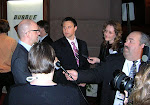At least one Ohio lawmaker would like to make it illegal for broadcasters to play 9-1-1 tapes for the public. If he gets his way, doing so would result in a $10,000 fine.
Last time around, this bill went nowhere. But, it raises some interesting questions for me as a journalist and broadcaster.
First, passing such a bill would result in yet another exemption to the state’s sunshine laws, which are designed to provide transparency in government. In my book that’s a huge black mark for any legislative measure. However, as much as I love the sunshine laws, I have bigger problems with this particular proposal.
It has been my experience that most of the time when we play a 9-1-1 recording it happens at the request of law enforcement. Rarely is a tape requested for our own investigative reporting purposes. When we play these recordings, we are attempting to assist our local authorities in the execution of their jobs. It’s a service we provide to the public and integral to fulfilling our important role in the system of distributing information.
Here’s a case in point: At WMOA and WJAW, we recently played a series of 9-1-1 tapes at the request of law enforcement. The recordings were provided to members of the press without a formal request for the purpose of broadcasting to enlist the public’s assistance in the identification of a suspect. These particular recordings involved a series of fake bomb threats called in about our two local hospitals, Marietta College and Wal-Mart.
It’s the only time this year that we have used any 9-1-1 recordings for broadcasting purposes.
What would it accomplish to prohibit this kind of reporting? Who would be served by refusing access to the recordings themselves?
I can’t say for certain what is driving this legislation, but it makes me wonder how much certain legislators understand about the necessarily cooperative relationship between media and law enforcement.
Friday, April 17, 2009
Subscribe to:
Post Comments (Atom)



No comments:
Post a Comment